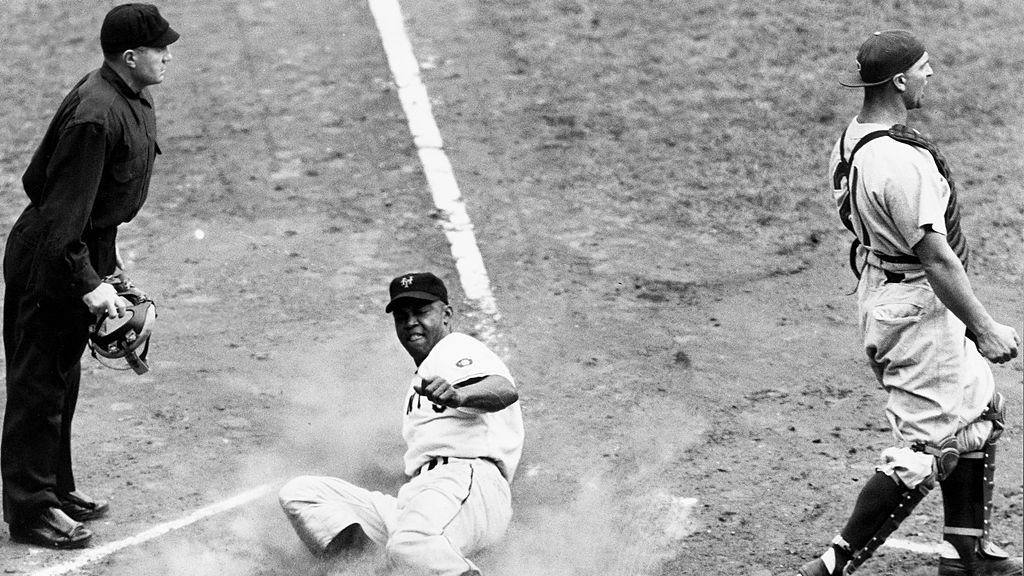Major League Baseball is rewriting its record books and making way for the Black pioneers who contributed to the sport's expansion.
According to a Wednesday statement from MLB Commissioner Rob Manfred, the league is officially recognizing the Negro National League, which was active between 1920 and 1948 with a two-year hiatus, as part of the MLB’s history. Manfred said the MLB will incorporate stats and records of almost 3,400 players who participated in Black baseball leagues as early as the 1920s, according to USA Today Sports.
With the MLB celebrating the centennial anniversary of the Negro National League, Manfred expressed that the endeavor is "correcting a longtime oversight in the game's history."
“This long-overdue recognition is the product of evaluation throughout this year, which included consideration of: discussions with the National Baseball Hall of Fame and Museum and other baseball entities; the previous and ongoing studies of baseball authors and researchers; the 2006 study by the National Baseball Hall of Fame (the Negro League Researchers and Authors Group); and an overall historical record that has expanded in recent years,” Manfred said.
"It is MLB’s view that the Committee’s 1969 omission of the Negro Leagues from consideration was clearly an error that demands today’s designation," he added.
According to the Negro League Baseball Museum (NLBM), Black people gravitated toward organized baseball in the late 1800s, prior to the emergence of national sports leagues. Although they competed against white colleges and military teams, racism and Jim Crow laws prevented Black players from joining mainstream leagues, which forced Black athletes to convene to create their own league in 1920.
Baseball greats like the pitching phenom Satchel Paige, slugging sensation Josh Gibson, the aptly named Cool Papa Bell and the iconic Jackie Robison ascended to stardom during the Negro League era. In 1945, the MLB’s Brooklyn Dodgers acquired Robinson from the Kansas City Monarchs, making him the first Black man to play on a Major League roster in the modern era of the sport.
”In the minds of baseball fans worldwide, this serves as historical validation for those who had been shunned from the Major Leagues and had the foresight and courage to create their own league that helped change the game and our country too," NLBM president Bob Kendrick said. "This acknowledgment is a meritorious nod to the courageous owners and players who helped build this exceptional enterprise."
Throughout many regions of the country, baseball lovers “have long known that the Negro Leagues produced many of our game’s best players, innovations and triumphs against a backdrop of injustice,” Manfred said in his statement. “We are now grateful to count the players of the Negro Leagues where they belong: as Major Leaguers within the official historical record.”
According to CBS Sports, MLB is also elevating recognition for the Eastern Colored League (1923–1928), the American Negro League (1929), the East-West League (1932), the Negro Southern League (1932) and the Negro American League (1937–1948).
Although MLB officials are working to reverse the league’s troubled past by embracing the Black Lives Matter movement and pledging to more diversity in hiring, only one minority hire was made this winter despite eight general management positions becoming vacant on teams. According to USA Today, Kim Ng became the first woman and first person of East Asian descent to be the general manager of an MLB franchise when she was brought onto the Miami Marlins in November.
Chicago White Sox executive vice president Ken Williams, the only Black male executive on an MLB team, told USA Today Sports that he was hurt to see the league pass on people of color who were skilled and deserved the job.
Williams, 56, was hired as the White Sox's general manager 20 years ago, and only three other Black general managers have been hired throughout the sport during his tenure. Ng, Williams, the Detroit Tigers’ Al Avila and San Francisco Giants’ Farhan Zaidi are the only active minority general managers, per USA Today.
“It hurts, man, it (expletive) hurts,’’ Williams said. “It hurts to see guys achieve things in this game, and it hurts to see these guys are so damn good at what they do, and they continue to get bypassed over and over again. It physically hurts.”
